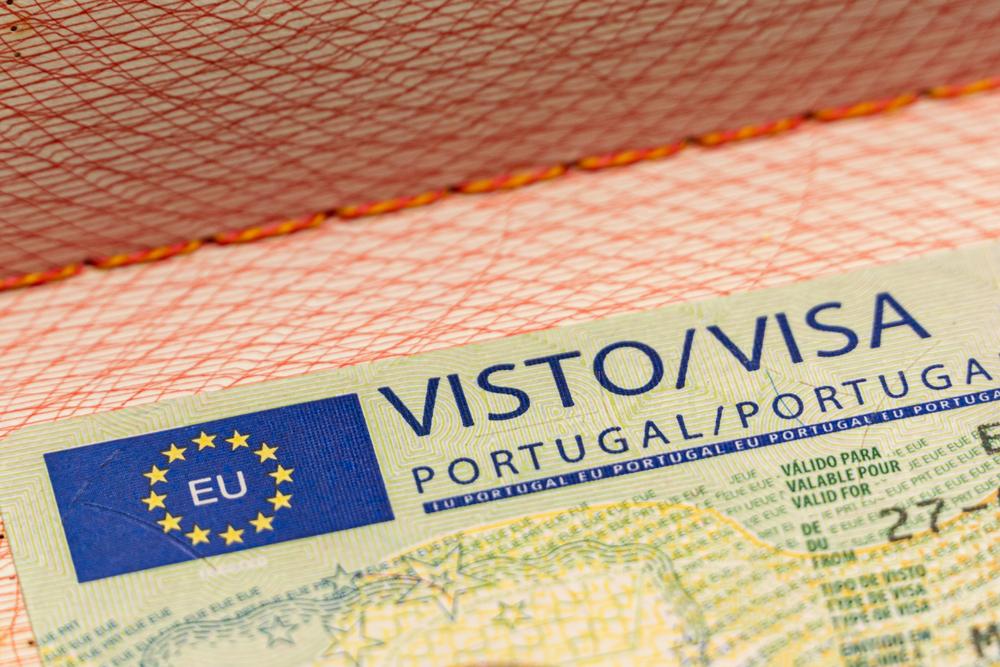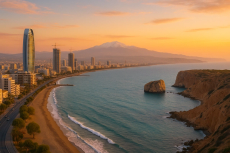Blog • Published on:May 28, 2024 | Updated on:November 23, 2024 • 5 Min
Digital Nomad’s Guide to Lisbon: Is Living in Portugal a Cost-Effective Choice?
The Digital Nomad Guide to Lisbon is essential in today’s world, given that experts estimate more than 35 million digital nomads are roaming the globe. To put that number in context, that is more than the populations of Australia, Malaysia, and Ghana.
With so many people working remotely and seeking flexible living arrangements, a comprehensive guide to Lisbon—a city renowned for its vibrant culture, affordable living, and strong digital infrastructure—provides valuable insights and resources for digital nomads looking for their next destination in European cities.
Digital nomads, whether they are remote workers or financially independent people who like to discover what the world has to offer, are spoiled for choice.
But among all those options lies a critical question: which place gets me the best value for money?
Many countries worldwide, European cities in particular attract digital nomads, and atop that list lies Portugal and its capital city, Lisbon. This city checks all the boxes for digital nomads in terms of living standards and ease of obtaining residency.
Does Lisbon Offer High Quality of Life for Digital Nomad?
High Safety Index of Lisbon
When digital nomads or financially independent people consider their next destination, a lot of factors come into play. One of the key aspects unpacked in this digital nomad guide to Lisbon is the safety of the Portuguese capital.
The safety and security of the country is one of the most important aspects of a good new home for digital nomads, and Portugal delivers. Portugal ranks 26th worldwide on the LEGATUM PROSPERITY INDEX (LPI), a ranking system that breaks down essential factors of a country and score it based on its overall performance.
In terms of safety and security, Portugal ranks 29th worldwide. The country is politically stable, thanks to a government that is primarily moderate, ensuring no political tensions from within.
Vast security measures are set in place, and the larger cities of Lisbon and Porto have become a melting pot of cultures thanks to large numbers of expats residing in them, creating an unspoken understanding of mutual respect and a willingness to create a safe, welcoming environment for digital nomads and remote workers.
Excellent Infrastructure of Lisbon
The infrastructure in Portugal is also top-notch, and this is probably one of the main aspects that sets coastal Lisbon apart from popular destinations such as Bali in Indonesia or Bangkok in Thailand.
While the Far East does have some spectacular scenery (so does Lisbon, though), it is the weaker infrastructure that worries digital nomads.
Good Healthcare System in Portugal
In this Digital nomad guide to Lisbon, the healthcare system is a significant aspect to be considered by a digital nomad. Portugal’s healthcare system ranks 40th on the LPI; in comparison, Indonesia’s ranks 87th. Education in Portugal ranks 39th worldwide, which makes it better than some other European countries and easily surpassing Indonesia’s and Thailand’s ranks of 89th and 72nd, respectively.
In Lisbon, digital nomads can rest assured that the living standards and infrastructure will let them live their best lives without worrying about life’s basics. This is definitely in comparison to other european capitals in Western Europe and around the globe.
How Does Lisbon Offer a Business-Friendly Environment?
Digital nomads take their work wherever they go, and the ease of doing business from a specific location makes all the difference.
Lisbon provides an excellent option with the 17th fastest internet connection worldwide for those working remotely and entirely dependent on digital operations.
Portugal also ranks 39th worldwide on the World Bank’s Ease Of Doing Business report, highlighting the fertile investment and economic landscape in the country that digital nomads can enjoy.
The strategic location of Portugal is optimal for digital nomads, as it is centrally located on the map, allowing remote workers to conduct business with the Far East and Far West in a typical 9-5 working day.

The D7 visa allows financially self-sufficient individuals, through stable income or sufficient savings, to reside affordably in Portugal.
Residency Simplified
Portugal D7 and digital nomad visas make obtaining residency in the Portugal a straightforward matter. This is an essential aspect of any good destination, and these visas set Portugal as one of the best.
The D7 requires applicants to have sufficient passive income or savings to qualify for a one-year temporary residency permit.
What is The Financial Income Requirement For Portugal’s D7 Visa?
The requirement for the D7 is as follows:
- Primary Applicant Income: Must have a passive income of at least €820 per month.
- Spouse/Partner Income: An additional50% of the main amount, which equates to an extra €380 per month.
- Dependent Children: An additional30% of the main amount for each child, amounting to €228 per month per child.
What is The Savings Requirement For Portugal’s D7 Visa?
- €16,920 savings for a single applicant
- €25,380 for a married couple
- €5,076 for each additional dependent
The digital nomad visaalso has a similarly simplified requirement list, as applicants need to be remote workers or freelances with an average monthly income of €3,280 per month, with savings sufficient to cover their family members in Portugal.
What Is the Cost of Living in Lisbon for Digital Nomads?
According to the Economist, Lisbon is one of most affordable European cities. Living costs in Lisbon are about 35% lower than in Paris, 71% lower than in London, and about 15% lower than in Berlin.
Getting the best value for money is paramount for the digital nomad lifestyle, and Lisbon certainly delivers.
An excellent infrastructure, amazing culture, outstanding natural scenery, affordable costs, and a streamlined route to residence make Lisbon the place to be for digital nomads.
Finally
Lisbon stands out as an ideal destination with its vibrant culture, affordable living, and robust digital infrastructure, making it a top choice for those seeking to maximize value for money. Whether you’re a remote worker or a financially independent traveler, this digital nomad guide to Lisbon highlights how high the living standards are and how easy it is to a residency. For more detailed insights on how to plan a digital nomad lifestyle, read our blog.
To know more about Portugal’s D7 and digital nomad visas, contact us today.
Written By

João Silva
João Silva is a seasoned consultant in the global mobility industry with over 12 years of experience. Specializing in European residency and citizenship by investment programs, João has assisted hundreds of high-net-worth clients in securing their second citizenship through strategic investments in real estate and government bonds.
Related Articles









Recently Published









Book a free consultation


